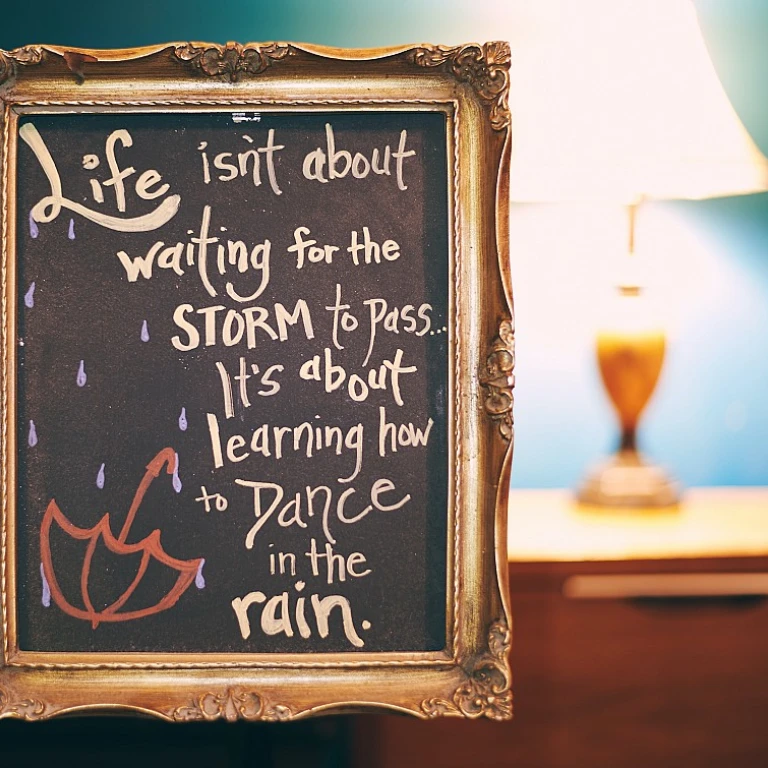
Understanding the Skills Gap
Recognizing the Implications of Skills Deficiency
In today's dynamic job market, the skills gap is a pressing concern that significantly affects both employees and employers. This gap often creates a disconnect between the skills a workforce currently possesses and those required by employers in today's rapidly evolving industries. This issue is not just about acquiring hard skills but also involves soft skills like communication and project management.
The emergence of bridging the skills gap strategies highlights the need for individuals and companies to be proactive. Employers seek candidates who can adapt, manage projects efficiently, and solve problems effectively. As such, situational job interviews have become pivotal tools in assessing candidates' true potential beyond their resumes.
Situational interview questions are crafted to gauge how candidates handle real-life scenarios at work. For instance, questions might include asking an applicant to describe a time they had to work as a part of a team to solve a problem, or how they managed their time during a major project. These questions require candidates to provide concrete sample answers that showcase their skills and abilities.
Ultimately, addressing the skills gap involves understanding and leveraging the skills each team member brings to the table. By focusing on practical examples and scenario-based evaluations, job interviews can effectively bridge this gap, ensuring that both the employers and employees thrive in their respective roles.
The Role of Situational Job Interviews
Utilizing Situational Job Interviews for Skills Assessment
Situational job interviews have become a staple in recruitment strategies aimed at addressing the skills gap. These interviews are specifically designed to evaluate a candidate's ability to handle real-world situations by posing scenario-based questions. This approach allows employers to assess practical skills and decision-making abilities beyond traditional interviews. Situational questions require candidates to draw upon their past experiences, describe a time they faced a particular challenge, and articulate how they managed it. By presenting these situations, employers can gauge essential skills such as problem solving, project management, and time management. It also reflects on the candidate's capacity to work effectively within a team or manage customer service scenarios. A behavioral interview involves questions that ask candidates to provide specific examples of how they've used their skills in past job situations. Here, the STAR method (Situation, Task, Action, Result) is often recommended for structuring responses. This method helps candidates formulate clear and concise answers, demonstrating their thought processes and results achieved. For instance, a sample question in a situational interview might be: "Describe a situation where you were under a tight deadline. How did you manage your time and what was the outcome?" A well-prepared candidate will be able to provide an example answer that reflects their time management and problem-solving skills, aligning with the job requirements. Incorporating these types of interview questions enables hiring managers to identify candidate skills that are often listed on resumes but sometimes difficult to verify. By focusing on how candidates answer these questions, employers can better understand their potential to excel in the job role they are applying for, thus helping to bridge the wide-ranging skills gap seen across many industries today.Preparing for Situational Job Interviews
Essential Preparation Strategies for Success
Navigating a situational job interview can be daunting, but with the right preparation, you can showcase your skills effectively. These interviews often involve questions that assess your ability to handle real-world scenarios within a work environment. Here are some key strategies to prepare:- Understand the Format: Recognize that situational interview questions are designed to evaluate your problem-solving abilities, how you manage time, and the way you handle being part of a team or leading one. Being ready to describe situation-specific examples where you've demonstrated these skills can be advantageous.
- Research Possible Questions: While each interview is unique, many situational interview questions follow a certain pattern. Familiarize yourself with common ones like "Describe a time you had to manage a challenging project" or "Give an example of how you resolved a customer service issue." This helps ensure you're not caught off guard.
- Employ the STAR Method: Structure your answers using the STAR method—Situation, Task, Action, and Result—to ensure your response is comprehensive and organized. For each interview question, provide context (Situation), explain your responsibilities (Task), detail the steps you took (Action), and outline the outcomes (Result).
- Reflect on Past Experiences: Think about previous instances at work where you had critical moments, whether they were in project management or dealing with interpersonal conflict. These instances can provide rich, relatable examples for your answers.
- Practice Makes Perfect: Engage in mock interviews to practice your situational questions answers with a peer or mentor. Feedback will help refine your responses and boost your confidence for the actual interview.
Common Challenges in Situational Interviews
Overcoming Common Pitfalls in Situational Interviews
Navigating situational interviews can often present a series of challenges for candidates. These interviews require a unique blend of preparation, presence of mind, and adaptability. One key element is understanding the types of scenario-based questions that might be asked, as they typically focus on past experiences to predict future behaviors. Let's delve into some common challenges candidates face and how to effectively manage them.Understanding the STAR Method
A major hurdle in situational interviews is organizing your thoughts and responses in a coherent manner. Here, the STAR method (Situation, Task, Action, Result) can be invaluable. By structuring your answers with this framework, you articulate clear and concise narratives that reflect your problem-solving skills and decision-making ability.Navigating Behavioral Interview Questions
Behavioral questions are crafted to delve deeper into your past behaviors and competencies. For instance, you might be asked: "Describe a time you successfully led a team during a challenging project." It's crucial to not only describe the situation but also highlight your role and the impact of your actions. Practicing these types of questions ensures you provide comprehensive and relevant answers during the actual interview.Handling Ambiguity and Unexpected Questions
Scenario-based interviews often throw curveballs to assess your adaptability. Questions might be vague, asking you to tackle a situation with limited information. For example, "How would you handle a sudden conflict within your team?" Approaching these questions with a calm mind and a problem-solving attitude is essential. Refrain from rushing your answers; instead, take a moment to formulate a thoughtful response.Balancing Confidence and Humility
While it's crucial to express confidence in your skills and abilities, showcasing humility is equally important. Managers and employers appreciate candidates who recognize areas for improvement and are eager to learn. Striking this balance not only enhances your appeal but also aligns with today's dynamic work environments where continuous learning is valued.Time Management in Responses
Finally, managing your response time is a critical skill. Interviewers are looking for concise yet comprehensive answers. Practice keeping your responses within a 2-3 minute range, ensuring you cover all aspects of the STAR method without straying off-topic. This demonstrates your ability to communicate effectively and respect the interview's timeframe. Mastering these aspects can significantly bridge the skills gap for candidates seeking to make a lasting impression in situational job interviews.Employer Strategies for Effective Interviews
Strategies for Employers to Conduct Effective Interviews
In today's highly competitive job market, employers must adopt strategic approaches to identify candidates who can efficiently navigate situational challenges and possess the relevant skills necessary for their roles. The traditional interview methods may not adequately uncover a candidate's aptitude for problem-solving, teamwork, and time management. Hence, implementing specific strategies can refine the interview process for both parties.- Incorporate Situational Questions: Employers should utilize situational interview questions that require candidates to describe a time they successfully resolved a workplace challenge. This type of question can reveal the applicant's thought process and ability to handle similar work scenarios in future roles.
- Utilize the STAR Method: Encouraging candidates to structure their responses through the STAR (Situation, Task, Action, Result) method can help interviewers assess their skills more effectively. This technique not only improves the clarity of the candidate's answers but also allows employers to evaluate their problem-solving abilities and outcomes achieved.
- Behavioral and Scenario-Based Questions: Mixing behavioral and scenario-based questions within the interview can provide a holistic view of the applicant's skills and adaptability. These questions might involve scenarios within project management or customer service that require a specific skill set, enabling the employer to gauge the candidate's capabilities.
- Panel Interviews for Diverse Perspectives: Conducting interviews with a panel, as opposed to a single interviewer, ensures a more comprehensive assessment of the candidate's qualifications. Each panel member can focus on different aspects, such as technical skills, cultural fit within the team, or leadership potential.
- Assessment of Cultural Fit: Understanding how a candidate aligns with the company's values and team dynamics is crucial. Interviewers should craft questions to gauge the applicant's compatibility with the organization's culture and work environment, which can significantly impact long-term success.
Future Trends in Job Interviews and Skills Assessment
Emerging Trends in Job Interviews and Skills Assessment
As the job market continues to evolve, so do the methods used to assess candidates' skills and abilities. Employers are increasingly focusing on innovative approaches to bridge the skills gap, ensuring they find the right fit for their teams. Here are some key trends shaping the future of job interviews and skills assessment:
- Emphasis on Soft Skills: While technical skills remain crucial, employers are placing greater importance on soft skills such as communication, teamwork, and problem-solving. Situational interview questions are designed to evaluate these abilities by asking candidates to describe a situation where they demonstrated these skills.
- Use of Technology: Video interviews and AI-driven assessments are becoming more common. These tools help streamline the interview process and provide a more comprehensive evaluation of a candidate's skills and personality.
- Scenario-Based Assessments: Employers are increasingly using scenario-based questions to assess how candidates would handle real-world situations. This approach helps identify candidates who can think critically and adapt to changing circumstances.
- Focus on Continuous Learning: Companies are recognizing the importance of ongoing skills development. By encouraging employees to engage in continuous learning, organizations can better prepare their teams for future challenges.
- Behavioral Interviews: Behavioral interviews remain a staple in the hiring process. By asking candidates to provide example answers based on past experiences, employers can gain insights into their potential future performance.
These trends highlight the need for candidates to be well-prepared for situational and behavioral interviews. Understanding the types of questions that may be asked and practicing sample answers can make a significant difference in the outcome of a job interview. As the landscape of work continues to change, staying informed about these trends will be essential for both job seekers and employers alike.













